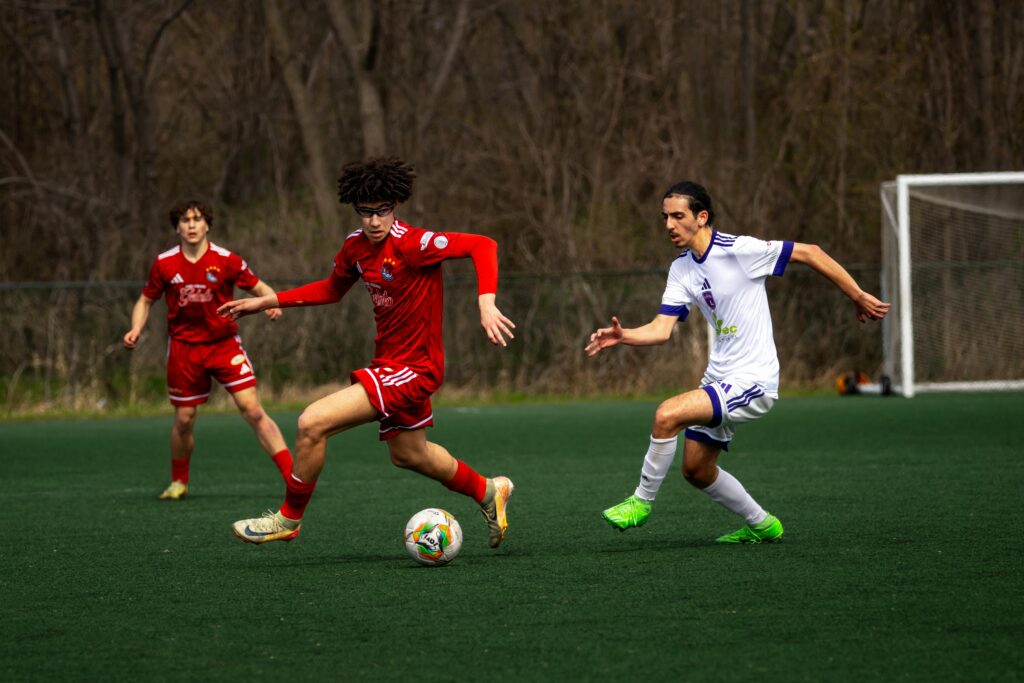FREE SHIPPING OVER Є65
What Are Football Scouts? A Complete Guide to Scouting in Football
What are football scouts? What Do Football Scouts Look for in 7 Year Olds? If you’re passionate about football and dreaming of making it to the professional level, understanding what football scouts are is essential. Scouts play a crucial role in identifying talented players early, providing opportunities for young athletes to progress. This guide explores exactly what football scouts are, what football scouts look for in different age groups, how they contact players, and tips on how to get scouted in football.

What Are Football Scouts? An Introduction to Talent Spotters in Football
Before diving into what football scouts are looking for, it’s important to understand what football scouts themselves. Football scouts are highly trained professionals who identify talented players with the potential to succeed at higher levels of the sport. They play a vital role in the football ecosystem by discovering future stars and helping talented youngsters get noticed by clubs.
Football scouts attend matches, tournaments, and training sessions to evaluate players’ skills, attitude, and potential. They work for clubs, academies, or national teams, and their job is to find players who can enhance their team’s success. Scouts look beyond just technical ability; they assess players’ physical attributes, tactical understanding, mental toughness, and work ethic.
In essence, football scouts are the talent …finders of the sport, bridging the gap between raw potential and professional opportunities. Recognizing what football scouts are and how they operate is crucial for young players aiming to catch their eye and progress in the game.
What Do Football Scouts Look for in 7 Year Olds?
At the age of 7, scouts are primarily looking for natural talent, enthusiasm, and basic skills. They focus on:
- Potential and raw ability: Good coordination, balance, and agility.
- Interest and attitude: Passion for the game, eagerness to improve, and coachability.
- Basic technical skills: Dribbling, passing, and ball control.
Most importantly, scouts value players who display a genuine love for football and demonstrate early signs of natural talent.

What Do Football Scouts Look for in 10 Year Olds?
By age 10, scouts begin to look more closely at technical skills combined with potential for development, such as:
- Ball control and dribbling ability: Confident and creative with the ball.
- Passing accuracy: Ability to pass under pressure.
- Game understanding: Basic tactics, positioning, and awareness.
- Physical attributes: Speed, agility, and stamina.
- Attitude and teamwork: Commitment, discipline, and willingness to learn.
At this stage, scouts may invite promising players to tryouts or development programs to assess further potential.
What Do Football Scouts Look for in 11 Year Olds?
At 11, scouts expect players to showcase more refined skills and tactical understanding:
- Technical proficiency: Shooting, crossing, and defensive skills.
- Game intelligence: Tactical awareness, positioning, and decision-making.
- Physical growth: Speed, strength, and endurance.
- Consistency: Reliable performance over multiple games.
- Work ethic and attitude: Dedication, coachability, and leadership qualities.
Strong performances at this age can lead to invitations to academy trials or regional competitions.
What Do Football Scouts Look for in 12 Year Olds?
By age 12, scouts are evaluating more advanced football intelligence and physical development:
- Technical mastery: Executing skills under pressure consistently.
- Tactical understanding: Reading the game and adapting to different roles.
- Physical attributes: Strength, speed, and coordination.
- Mental toughness: Resilience, focus, and motivation.
- Potential for progression: Ability to develop quickly and fit into advanced team strategies.
Players showing promise at this age are often funneled into professional clubs’ youth academies.
How Do Football Scouts Contact You?
Football scouts do not typically approach players directly without prior assessment or exposure. Common ways they contact players include:
- Attending local matches, tournaments, or school games.
- Inviting players to trials or open days organized by clubs or academies.
- Reaching out through coaches, agents, or scouts networks.
- Using social media or online scouting platforms to find talented players.
- Recommendations from coaches or football development programs.
To increase your chances, it’s vital to perform well in games, attend open trials, and stay visible to scouts.
How to Get Scouted in Football
Here are some practical steps to improve your chances of getting scouted:
- Perform well consistently: Play regularly in local teams, school leagues, or tournaments.
- Showcase your talent: Attend open trials, tournaments, and showcase events.
- Develop your skills: Work on technical, tactical, and physical aspects of your game.
- Stay motivated and coachable: Demonstrate a positive attitude and willingness to learn.
- Create a highlight reel: Share videos of your best plays on social media or scouting platforms.
- Get a good coach or agent: A knowledgeable coach can recommend you to scouts and help you progress.

What Happens When You Get Scouted for Football?
When a scout shows interest, the typical process involves:
- Invitations to attend trials or training sessions.
- Performance assessments by coaching staff.
- Feedback sessions where skills, attitude, and potential are evaluated.
- Possible offers to join youth academies or attend further development programmes.
- Signing contracts if the player is deemed suitable for professional progression.
Being scouted is a significant milestone that can open doors to a professional football career.
Conclusion
In summary, understanding what are football scouts looking for and how do they contact players can help aspiring footballers take strategic steps toward success. Focus on developing your skills, maintaining a positive attitude, and actively seeking opportunities—your journey to becoming a professional footballer could be just around the corner!
Check out our shop here!
View More Articles Here:
What Are Football Trials? Your Complete Guide to UK Football Trials
What Are Football Leagues? An In-Depth Overview
What Are Football Trials? Your Complete Guide to UK Football Trials
How Football Shirts Are Made | Materials, Technology & Sustainability
